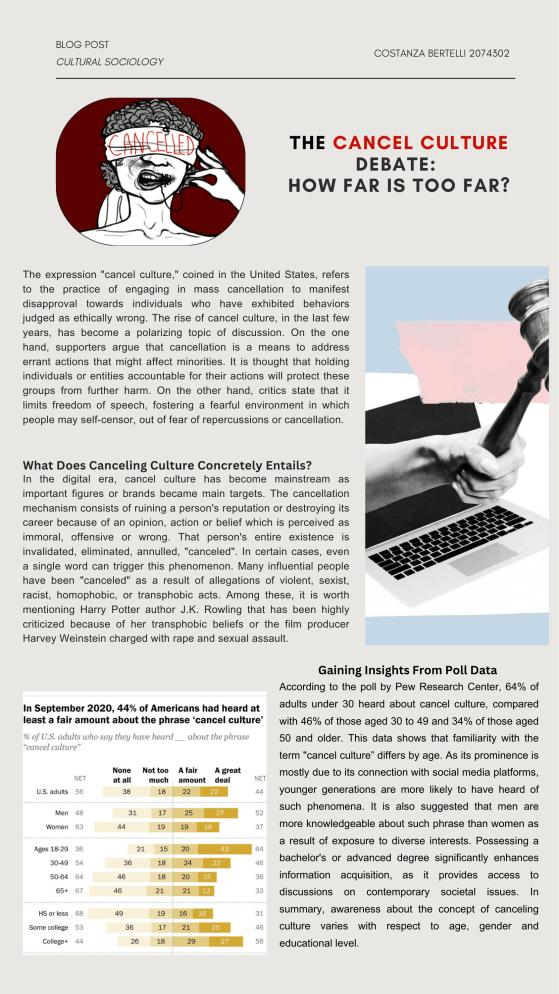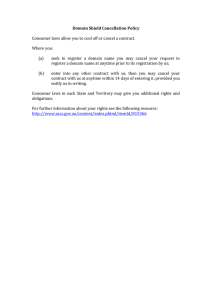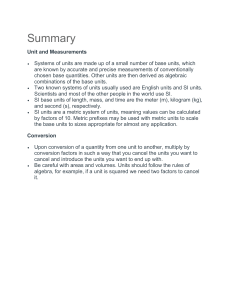
BLOG POST COSTANZA BERTELLI 2074302 CULTURAL SOCIOLOGY THE CANCEL CULTURE DEBATE: HOW FAR IS TOO FAR? The expression "cancel culture," coined in the United States, refers to the practice of engaging in mass cancellation to manifest disapproval towards individuals who have exhibited behaviors judged as ethically wrong. The rise of cancel culture, in the last few years, has become a polarizing topic of discussion. On the one hand, supporters argue that cancellation is a means to address errant actions that might affect minorities. It is thought that holding individuals or entities accountable for their actions will protect these groups from further harm. On the other hand, critics state that it limits freedom of speech, fostering a fearful environment in which people may self-censor, out of fear of repercussions or cancellation. What Does Canceling Culture Concretely Entails? In the digital era, cancel culture has become mainstream as important figures or brands became main targets. The cancellation mechanism consists of ruining a person's reputation or destroying its career because of an opinion, action or belief which is perceived as immoral, offensive or wrong. That person's entire existence is invalidated, eliminated, annulled, "canceled". In certain cases, even a single word can trigger this phenomenon. Many influential people have been "canceled" as a result of allegations of violent, sexist, racist, homophobic, or transphobic acts. Among these, it is worth mentioning Harry Potter author J.K. Rowling that has been highly criticized because of her transphobic beliefs or the film producer Harvey Weinstein charged with rape and sexual assault. Gaining Insights From Poll Data According to the poll by Pew Research Center, 64% of adults under 30 heard about cancel culture, compared with 46% of those aged 30 to 49 and 34% of those aged 50 and older. This data shows that familiarity with the term "cancel culture” differs by age. As its prominence is mostly due to its connection with social media platforms, younger generations are more likely to have heard of such phenomena. It is also suggested that men are more knowledgeable about such phrase than women as a result of exposure to diverse interests. Possessing a bachelor's or advanced degree significantly enhances information acquisition, as it provides access to discussions on contemporary societal issues. In summary, awareness about the concept of canceling culture varies with respect to age, gender and educational level. BLOG POST COSTANZA BERTELLI 2074302 CULTURAL SOCIOLOGY The Bridge Between Durkheimian Theories and Canceling Culture Realities Émile Durkheim (1858 - 1917) The concept of cancel culture can be examined through the lenses of French sociologist Émile Durkheim's concept of social facts. A social fact describes collective thoughts and shared expectations that shape an individual's actions. Social facts include norms and values that exercise control over people and society as a whole. These facts determine how people act and feel due to its norms being accepted by a large number of people. Social facts include, then, factors that are external to an individual but still hold considerable influence over their lives. These circumstances are unique in their existence as they are independent of the individual's consciousness, but shape its societal behavior and reality. Considering that cancel culture emerges from unified denunciation acts, its consequences derive from collective responses rather than from a singular individual action. As Durkheim explained, the condemnation of what is considered to be inappropriate behavior within a society is independent of human will and external to the individual consciousness. A person is “canceled” because of the need for social justice expressed by a large group of people. Cancel culture due to its collective nature strengthens social bonds for members within a community. Again, it is society as a whole to determine, based on shared beliefs and moral principles, which actions or statements can be considered as acceptable or not. Therefore, the idea of cancel culture revolves around the social norms and rules ingrained within society. The act of cancellation enforces the prevailing societal norms by holding individuals accountable for their undesirable conducts. On the basis of these arguments, it is possible to state that cancel culture represents a contemporary manifestation of social facts. The impact of cancel culture on vocabulary Society will always have the power to influence individuals in line with the ideas and values it upholds and defends. However, with the advent of social media, the need to respect embraced ethical standards has been emphasized and intensified. Increasing attention is given to the languages to adopt, the phrases to avoid and the words to incorporate into common vocabulary in order to be more thoughtful of minority segments and people in general. In the era of cancel culture, people are cautious about the words they use and the comments they make, since every perceived offense might result in public outrage. This climate of increased sensitivity to language and potential social media scrutiny has created an environment in which people are more conscious of what they say in order to avoid being targeted by cancel culture. BLOG POST COSTANZA BERTELLI 2074302 CULTURAL SOCIOLOGY Conflicting perspectives on canceling culture Some people believe that participation in cancel culture is the most effective way to hold public figures accountable, especially when no other legal means appear to be working. Others see cancel culture as a social media mob mentality which has gone out of control. Is cancel culture a valuable social justice tool or a new type of brutal mob intimidation? Whether cancel culture is viewed as a helpful social justice instrument or a kind of mob intimidation depends on the prevailing social facts and norms in a society at a given time. Society must, then, evaluate ethical responses to intolerable situations, promoting open, inclusive dialogue among societal members, allowing everyone, both individuals making accusations and those accused, to speak up and express opinions while respecting oneself and others. References Humak University of Applied Sciences. (n.d.). Cancel culture: A trend worth canceling or nurturing? [Blog post]. Retrieved from https://www.humak.fi/en/blogs/cancel-culture-a-trend-worth-canceling-or-nurturing/ CBS News. (n.d.). Cancel culture: The internet joke that's https://www.cbsnews.com/news/cancel-culture-internet-joke-anything-but/ anything but. Retrieved from Merriam-Webster. (n.d.). Cancel culture: Words we're watching. Retrieved from https://www.merriamwebster.com/wordplay/cancel-culture-words-were-watching The Johns Hopkins News-Letter. (2020, February). How we should understand cancel culture after Weinstein. Retrieved from https://www.jhunewsletter.com/article/2020/02/how-we-should-understand-cancel-culture-afterweinstein GoodtoKnow. (n.d.). What is cancel culture? Retrieved from https://www.goodto.com/entertainment/what-iscancel-culture-607262 Vox. (2019, December 30). What is cancel culture? Explained: History and debate. Retrieved from https://www.vox.com/culture/2019/12/30/20879720/what-is-cancel-culture-explained-history-debate




